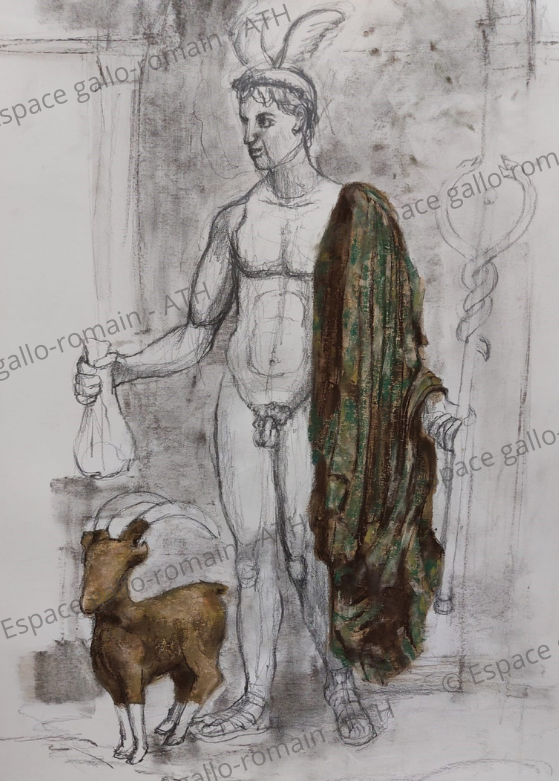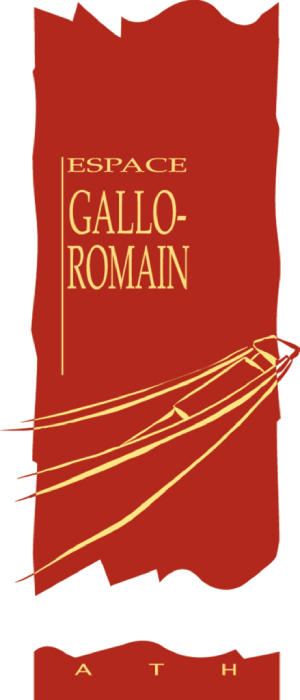The trade
Pommeroeul played an important commercial role; the town was a place of exchange between the rural and urban world, between exported and imported products. Numerous remains testify to this activity: coins, scales, weights, etc.
The god Mercury was particularly popular with the Gallo-Romans, perhaps because he is the god of merchants and thieves as well as the messenger of all the gods… His attributes include the wings, the caduceus, the purse and the goat.
Trade was regulated, which meant taxes, seals and verification of quality. Seals were affixed to the goods indicating exemption from customs duties, proof of payment or the name of the owner. They could be made of lead or wax and placed in seal boxes. The Gallo-Romans used their seal ring or the initials of their tria nomina. Samples were used to taste the products sold, such as this amphora stopper which, once turned upside down, could contain a portion of the liquid transported.
Numerous objects have been found that bear witness to the commercial activities of the town and in particular to the weighing stage. Traders were equipped with various types of scales for weighing goods and also for weighing money. The monetary scales made it possible to know the weight of the currencies and to convert them, a practice in our regions in the midst of Romanisation where the currencies were very diverse. The Gallo-Roman monetary system included Gallic coins (in potin = an alloy of copper and tin, and more rarely in gold, silver and bronze) and Roman coins (in gold, silver, copper and sometimes bronze). With time and the arrival of Roman soldiers and merchants, monetarisation accelerated. Roman coins became the currency of the whole empire.

